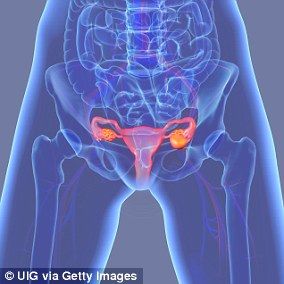A woman has just months to live after doctors missed a golf ball-sized tumor clearly visible on a scan and then dismissed her concerns for two years as the cancer spread.
In the previous two decades, Anne Shaw, 68, had been successfully treated for breast and ovarian cancer, putting her at higher risk of developing cancer again.
But doctors at St James’s University Hospital in Leeds failed to detect a 3.3cm tumor on her ovary during a routine scan in the summer of 2019.
And then they didn’t take her seriously when she returned to the hospital in February 2020 complaining of ovarian cancer symptoms and raising concerns that it might have returned.
“The registrar I saw had clearly not read my medical records,” Anne said. “He touched my stomach area briefly and he told me it was fine, despite what I was telling him about my story.”
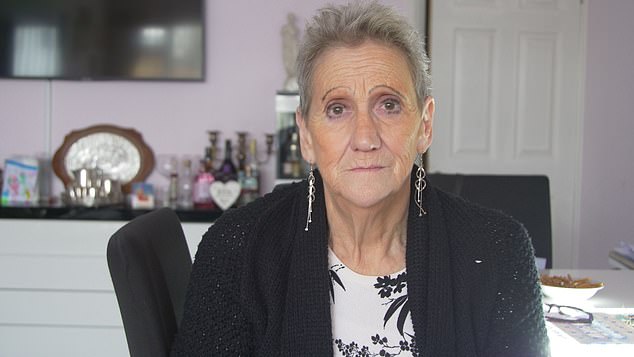
In the previous two decades, Anne Shaw, 68, had been successfully treated for breast and ovarian cancer, putting her at risk of developing cancer again.
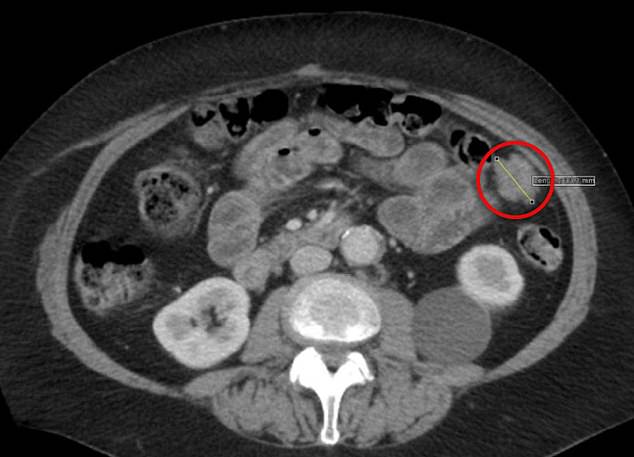

But doctors at St James’s University Hospital in Leeds failed to detect a 3.3cm tumor (pictured) on her ovary during a routine scan in the summer of 2019.
It wasn’t until she saw her GP again in September 2021 that she was rushed to a cancer specialist and was finally diagnosed with cancer that fall. By that time, it had spread to much of her intestine.
“The consultant said the hospital had a ‘duty of candor’, which meant it had to explain that the tumor could actually be seen on the 2019 scan,” Anne said. “She said that if they had acted at that time, it probably could have been easily fixed through chemotherapy and follow-up.”
Now the former Leeds career trainer and counselor is calling for two specialists to review cancer patients’ scans to prevent others from suffering the same fate.
Because the cancer had progressed so much when she was diagnosed, Anne needed a major six-hour operation to remove a large section of her intestine and fit a stoma.
Despite life-changing surgery and subsequent grueling chemotherapy, doctors were unable to remove all the cancer and told Anne there was nothing more they could do.
Now she is devastated that her remaining time has been marred by complications from stoma surgery, including pain, hernias, fatigue and a very limited diet.
‘This has ruined what’s left of my life, it’s absolutely devastating. “The fact that I’m so tired all the time and I have a stoma means I can’t do a lot of the things I would have wanted to do,” Anne said.
‘I am angry, disappointed and frustrated. I try to move forward with things as best I can and not think about “what if” all the time, but it’s very difficult.
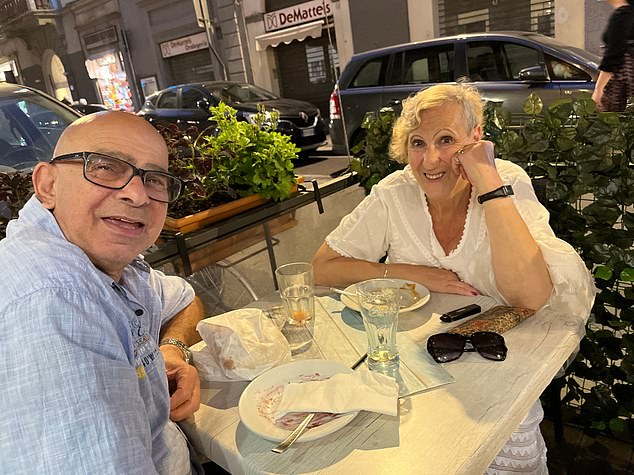

Anne said she was taking life day by day but hoped to celebrate her 25th wedding anniversary later this year with her husband Louis (pictured), 74, a retired taxi driver.
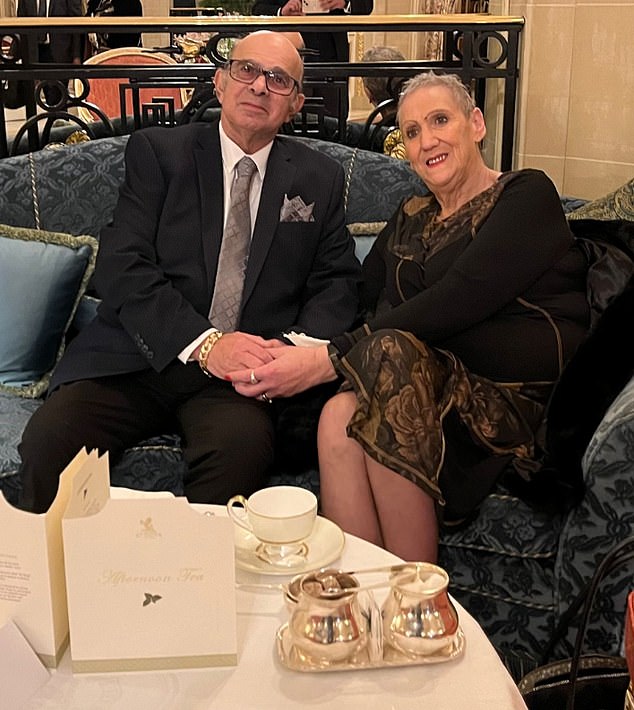

She said: “I just want to be treated like a human being, to feel like someone from the hospital listens to me and cares about the impact this has had on our lives.” And I want to make sure this doesn’t happen to anyone else.
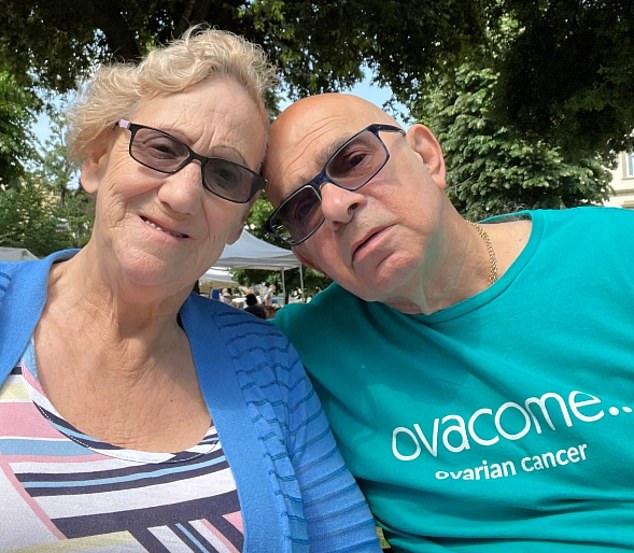

‘My whole life has changed and I’ve been through all this, but that hasn’t solved the problem. The cancer is still there and I don’t know how much time I have left,” she said.
‘I wonder why I have been put through everything I have been through, when it wouldn’t have been necessary if someone had reviewed the scan, reviewed my notes or listened to me at the time.
‘My whole life has changed and I’ve been through all this, but that hasn’t solved the problem. “The cancer is still there and I don’t know how much time I have left.”
Anne said she was taking life day by day but hoped to celebrate her 25th wedding anniversary later this year with her husband Louis, 74, a retired taxi driver.
The couple were supported by law firm Slater and Gordon to reach a settlement with the NHS Trust for a six-figure sum, a figure which Louis said “won’t bring my wife back”.
Anne is disappointed that managers at Leeds Teaching Hospitals NHS Trust repeatedly refused her requests for a meeting to discuss her concerns or consider her suggestion to improve the way scans are reviewed.
She said: “I just want to be treated like a human being, to feel like someone from the hospital listens to me and cares about the impact this has had on our lives.” And I want to make sure this doesn’t happen to anyone else.
‘I would like to see a change so that two radiologists have to look at scans like mine together, so they can discuss and evaluate what they both see.
‘For me, it’s too late. But this could help save someone else’s life, or at least give them the time or quality of life that I don’t have.’
Clinical negligence solicitor John Lowther, of Slater and Gordon, who handled Anne’s claim against the hospital, said: “This is an absolutely shocking case in which two opportunities to identify Anne’s cancer have been missed: due to that they didn’t realize it had returned, she now has a much worse quality of life and is understandably very distressed about living with a stoma.
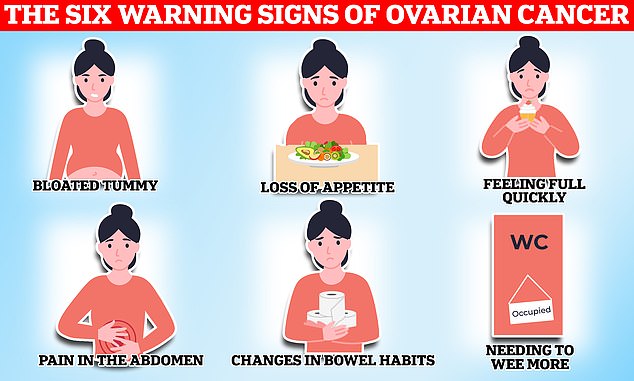

The disease kills an average of 11 women every day in Britain, or 4,000 a year. It also kills three times as many people each year in the United States, figures show. When symptoms are caused by ovarian cancer, they tend to be persistent; The National Institute for Health and Care Excellence (NICE) recommends that your GP arrange tests if you experience these symptoms 12 or more times a month.
“The last few years have been enormously difficult for Anne and Louis, and what should have been a happy retirement is now a nightmare for them both.”
He said the hospital should take steps to ensure these “costly mistakes” are not repeated and that Anne’s suggestion to have two radiologists review the scans was “very logical”.
“We would support the adoption of this, not just in this particular hospital but across the NHS,” he said.
After MailOnline approached Leeds Teaching Hospitals NHS Trust for comment, medical director Dr Magnus Harrison said: “We deeply regret the delay in Anne’s cancer diagnosis and the impact this has caused.”
‘As soon as we realized the error, we met with Anne and explained that we would investigate the discrepancies in the reports. This is so we can understand why and how it happened and what we can learn and improve. We have shared the findings of this research with Anne and have shared the learning with our radiologists and radiographers.
“We apologize that Anne’s meeting requests have not been met and we will contact Anne as soon as possible to arrange a convenient time to meet.”

